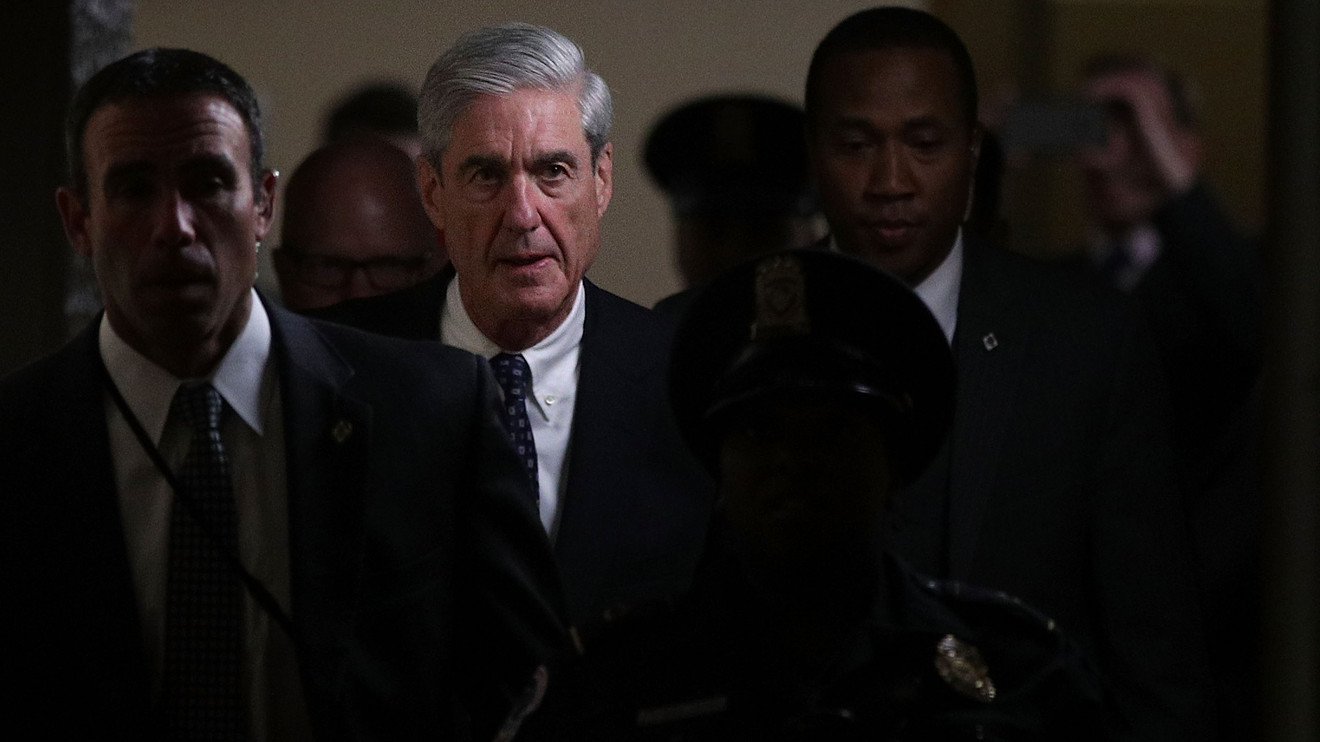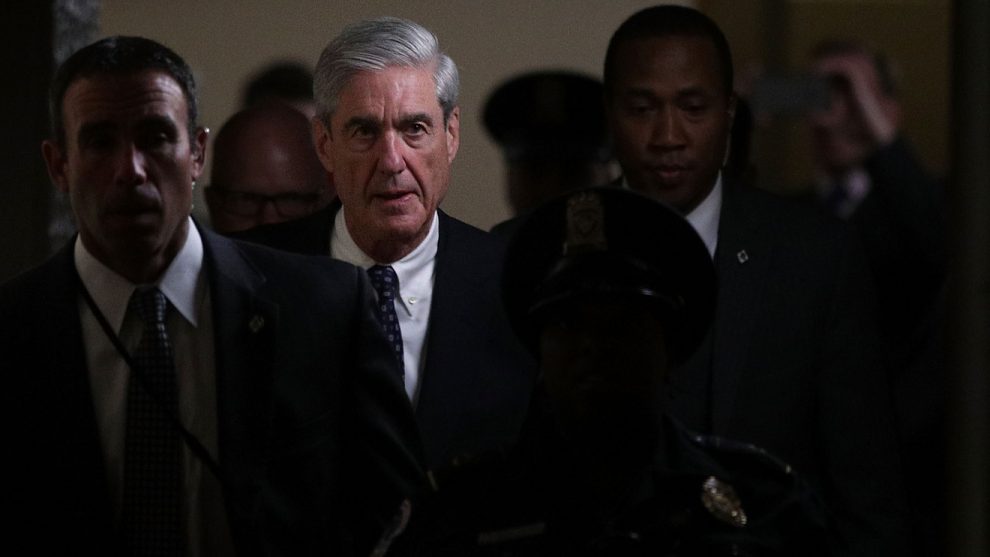
Now that the Mueller report has been released (albeit with redactions), Democrats see grounds for criticizing President Donald Trump’s actions, first as a candidate in welcoming Russian assistance during the 2016 campaign, and then as president in trying to shut down the investigation into Russia’s attack on the election. Meanwhile, Republicans line up behind the president, emphasizing that the special counsel’s report did not personally indict Trump and insisting it is time to move on.
It is easy and familiar for journalists to cover political disputes this way. It allows them to avoid charges of bias and it seems objective: The press reports on what both sides say, and the public decides who is right.
The problem, however, is that there aren’t always two equally valid sides to every debate. It’s time for prominent Republicans to cut through the phony “both sides-ism” and publicly support objective reality.
The basic facts of the Mueller report are as objectively clear as the composition of the moon. The special counsel concluded that (1) Russia attacked the 2016 election in an illegal effort to damage Hillary Clinton’s chances and to help Trump win; (2) Trump and his campaign were aware of Russia’s attack and welcomed it; (3) Trump and his team “serially lied to the American people about the existence of the foreign conspiracy and their contacts with it” and (4) there is substantial evidence that the president “engaged in obstruction of justice.”
One can, of course, reasonably disagree about next steps — for example, whether Trump ought to be impeached. But the central facts described by the report are not in dispute. The president’s defenders, including Attorney General William Barr, recognize that. Instead of contesting the evidence, they have attempted to mislead the public about what the report says or, in Rudy Giuliani’s case, to insist there is nothing wrong with wanting to accept stolen information from a foreign country trying to help you win a presidential election.
This is a matter of national security that requires us to ask what we can do to make sure there is no repeat of Russia’s 2016 attack.
The Mueller report obviously is not about tax policy or health care: This is a matter of national security that requires us to ask what we can do to make sure there is no repeat of Russia’s 2016 attack as the 2020 presidential campaign heats up.
Republicans often talk about putting country ahead of party, and many of them surely understand that Russia is no friend to the United States. Utah Senator Mitt Romney, for one, has been making this point for years — and, to his credit, he has broken with other Republicans by saying he is “sickened” by the “dishonesty and misdirection…including [by] the President” that the Mueller report describes. But why is Romney an outlier? Why aren’t more Republicans standing with him and making clear how serious the Mueller report is?
It’s not hard to guess why. Republicans in Congress understand that theirs is now the party of Trump. Crossing the president means facing a bullying broadside from Trump and risking a primary challenge. Even Romney’s criticism was oddly constrained: he gave no indication that he believed the president or his campaign team should face any consequences for their actions, saying instead that “the business of government can [now] move on.” Romney’s view, seems to be that while it’s “appall[ing] that….[Americans] working in a campaign welcomed help from Russia — including information that had been illegally obtained,” apparently there’s nothing more to be done other than offer some scolding words and hope it doesn’t happen again.
If Americans can’t count on Republicans to take meaningful action, we can still call on those Republicans who are no longer in office and have nothing to fear politically from taking on Trump. In fact, some retired Republicans are speaking up. Former New Jersey Governor Christie Whitman describes Trump’s efforts to shut down the Mueller investigation as “the stuff of [would-be] [d]ictators” and “undermining…our Constitution.”
That’s a good start — but it is important for other Republicans to join. For instance, former President George W. Bush could speak up. He knows and respects Robert Mueller, who served as FBI director during Bush’s time in office. If Bush made clear that this is a country over party moment and that it would be a tragic mistake to see the Mueller report as a vindication for Trump, that could make a difference. Of course Trump’s true believers won’t be moved; they’d likely see this as simply the latest evidence that party insiders have it in for Trump. But Bush’s voice could make a difference to other Americans by signaling that this is something serious.
Scholars who study would-be authoritarians like Trump find that party elites can play an important role indefending constitutional democracy. It would be a mistake to close our eyes, cross our fingers, and hope we don’t see the same kind of attack on the 2020 election that we saw in 2016, once again eagerly welcomed by the Trump campaign.
The time to act is now. Prominent Republicans can and should speak up to give the public a clear-eyed account of what the Mueller report really says and means — and what we can do to defend our democracy.
Chris Edelson is an assistant professor of government in American University’s School of Public Affairs. He has written two books on presidential power.
Want news about Europe delivered to your inbox? Subscribe to MarketWatch’s free Europe Daily newsletter. Sign up here.












